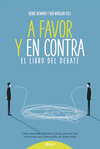Kitabı oku: «The Alkahest», sayfa 9
CHAPTER IX
The good people of Douai were not surprised that visitors were no longer received at the House of Claes, and that Balthazar gave no more fetes on the anniversary of his marriage. Madame Claes’s state of health seemed a sufficient reason for the change, and the payment of her husband’s debts put a stop to the current gossip; moreover, the political vicissitudes to which Flanders was subjected, the war of the Hundred-days, and the occupation of the Allied armies, put the chemist and his researches completely out of people’s minds. During those two years Douai was so often on the point of being taken, it was so constantly occupied either by the French or by the enemy, so many foreigners came there, so many of the country-people sought refuge within its walls, so many lives were in peril, so many catastrophes occurred, that each man thought only of himself.
The Abbe de Solis and his nephew, and the two Pierquins, doctor and lawyer, were the only persons who now visited Madame Claes; for whom the winter of 1814-1815 was a long and dreary death-scene. Her husband rarely came to see her. It is true that after dinner he remained some hours in the parlor, near her bed; but as she no longer had the strength to keep up a conversation, he merely said a few words, invariably the same, sat down, spoke no more, and a dreary silence settled down upon the room. The monotony of this existence was broken only on the days when the Abbe de Solis and his nephew passed the evening with Madame Claes.
While the abbe played backgammon with Balthazar, Marguerite talked with Emmanuel by the bedside of her mother, who smiled at their innocent joy, not allowing them to see how painful and yet how soothing to her wounded spirit were the fresh breezes of their virgin love, murmuring in fitful words from heart to heart. The inflection of their voices, to them so full of charm, to her was heart-breaking; a glance of mutual understanding surprised between the two threw her, half-dead as she was, back to the young and happy past which gave such bitterness to the present. Emmanuel and Marguerite with intuitive delicacy of feeling repressed the sweet half-childish play of love, lest it should hurt the saddened woman whose wounds they instinctively divined.
No one has yet remarked that feelings have an existence of their own, a nature which is developed by the circumstances that environ them, and in which they are born; they bear a likeness to the places of their growth, and keep the imprint of the ideas that influenced their development. There are passions ardently conceived which remain ardent, like that of Madame Claes for her husband: there are sentiments on which all life has smiled; these retain their spring-time gaiety, their harvest-time of joy, seasons that never fail of laughter or of fetes; but there are other loves, framed in melancholy, circled by distress, whose pleasures are painful, costly, burdened by fears, poisoned by remorse, or blackened by despair. The love in the heart of Marguerite and Emmanuel, as yet unknown to them for love, the sentiment that budded into life beneath the gloomy arches of the picture-gallery, beside the stern old abbe, in a still and silent moment, that love so grave and so discreet, yet rich in tender depths, in secret delights that were luscious to the taste as stolen grapes snatched from a corner of the vineyard, wore in coming years the sombre browns and grays that surrounded the hour of its birth.
Fearing to give expression to their feelings beside that bed of pain, they unconsciously increased their happiness by a concentration which deepened its imprint on their hearts. The devotion of the daughter, shared by Emmanuel, happy in thus uniting himself with Marguerite and becoming by anticipation the son of her mother, was their medium of communication. Melancholy thanks from the lips of the young girl supplanted the honeyed language of lovers; the sighing of their hearts, surcharged with joy at some interchange of looks, was scarcely distinguishable from the sighs wrung from them by the mother’s sufferings. Their happy little moments of indirect avowal, of unuttered promises, of smothered effusion, were like the allegories of Raphael painted on a black ground. Each felt a certainty that neither avowed; they knew the sun was shining over them, but they could not know what wind might chase away the clouds that gathered about their heads. They doubted the future; fearing that pain would ever follow them, they stayed timidly among the shadows of the twilight, not daring to say to each other, “Shall we end our days together?”
The tenderness which Madame Claes now testified for her children nobly concealed much that she endeavored to hide from herself. Her children caused her neither fear nor passionate emotion: they were her comforters, but they were not her life: she lived by them; she died through Balthazar. However painful her husband’s presence might be to her, lost as he was for hours together in depths of thought from which he looked at her without seeing her, it was only during those cruel moments that she forgot her griefs. His indifference to the dying woman would have seemed criminal to a stranger, but Madame Claes and her daughters were accustomed to it; they knew his heart and they forgave him. If, during the daytime, Josephine was seized by some sudden illness, if she were worse and seemed near dying, Claes was the only person in the house or in the town who remained ignorant of it. Lemulquinier knew it, but neither the daughters, bound to silence by their mother, nor Josephine herself let Balthazar know the danger of the being he had once so passionately loved.
When his heavy step sounded in the gallery as he came to dinner, Madame Claes was happy – she was about to see him! and she gathered up her strength for that happiness. As he entered, the pallid face blushed brightly and recovered for an instant the semblance of health. Balthazar came to her bedside, took her hand, saw the misleading color on her cheek, and to him she seemed well. When he asked, “My dear wife, how are you to-day?” she answered, “Better, dear friend,” and made him think she would be up and recovered on the morrow. His preoccupation was so great that he accepted this reply, and believed the illness of which his wife was dying a mere indisposition. Dying to the eyes of the world, in his alone she was living.
A complete separation between husband and wife was the result of this year. Claes slept in a distant chamber, got up early in the morning, and shut himself into his laboratory or his study. Seeing his wife only in presence of his daughters or of the two or three friends who came to visit them, he lost the habit of communicating with her. These two beings, formerly accustomed to think as one, no longer, unless at rare intervals, enjoyed those moments of communion, of passionate unreserve which feed the life of the heart; and finally there came a time when even these rare pleasures ceased. Physical suffering was now a boon to the poor woman, helping her to endure the void of separation, which might have killed her had she been truly living. Her bodily pain became so great that there were times when she was joyful in the thought that he whom she loved was not a witness of it. She lay watching Balthazar in the evening hours, and knowing him happy in his own way, she lived in the happiness she had procured for him, – a shadowy joy, and yet it satisfied her. She no longer asked herself if she were loved, she forced herself to believe it; and she glided over that icy surface, not daring to rest her weight upon it lest it should break and drown her soul in a gulf of awful nothingness.
No events stirred the calm of this existence; the malady that was slowly consuming Madame Claes added to the household stillness, and in this condition of passive gloom the House of Claes reached the first weeks of the year 1816. Pierquin, the lawyer, was destined, at the close of February, to strike the death-blow of the fragile woman who, in the words of the Abbe de Solis, was well-nigh without sin.
“Madame,” said Pierquin, seizing a moment when her daughters could not hear the conversation, “Monsieur Claes has directed me to borrow three hundred thousand francs on his property. You must do something to protect the future of your children.”
Madame Claes clasped her hands and raised her eyes to the ceiling; then she thanked the notary with a sad smile and a kindly motion of her head which affected him.
His words were the stab that killed her. During that day she had yielded herself up to sad reflections which swelled her heart; she was like the wayfarer walking beside a precipice who loses his balance and a mere pebble rolls him to the depth of the abyss he had so long and so courageously skirted. When the notary left her, Madame Claes told Marguerite to bring writing materials; then she gathered up her remaining strength to write her last wishes. Several times she paused and looked at her daughter. The hour of confidence had come.
Marguerite’s management of the household since her mother’s illness had amply fulfilled the dying woman’s hopes that Madame Claes was able to look upon the future of the family without absolute despair, confident that she herself would live again in this strong and loving angel. Both women felt, no doubt, that sad and mutual confidences must now be made between them; the daughter looked at the mother, the mother at the daughter, tears flowing from their eyes. Several times, as Madame Claes rested from her writing, Marguerite said: “Mother?” then she dropped as if choking; but the mother, occupied with her last thoughts, did not ask the meaning of the interrogation. At last, Madame Claes wished to seal the letter; Marguerite held the taper, turning aside her head that she might not see the superscription.
“You can read it, my child,” said the mother, in a heart-rending voice.
The young girl read the words, “To my daughter Marguerite.”
“We will talk to each other after I have rested awhile,” said Madame Claes, putting the letter under her pillow.
Then she fell back as if exhausted by the effort, and slept for several hours. When she woke, her two daughters and her two sons were kneeling by her bed and praying. It was Thursday. Gabriel and Jean had been brought from school by Emmanuel de Solis, who for the last six months was professor of history and philosophy.
“Dear children, we must part!” she cried. “You have never forsaken me, never! and he who – ”
She stopped.
“Monsieur Emmanuel,” said Marguerite, seeing the pallor on her mother’s face, “go to my father, and tell him mamma is worse.”
Young de Solis went to the door of the laboratory and persuaded Lemulquinier to make Balthazar come and speak to him. On hearing of the urgent request of the young man, Claes answered, “I will come.”
“Emmanuel,” said Madame Claes when he returned to her, “take my sons away, and bring your uncle here. It is time to give me the last sacraments, and I wish to receive them from his hand.”
When she was alone with her daughters she made a sign to Marguerite, who understood her and sent Felicie away.
“I have something to say to you myself, dear mamma,” said Marguerite who, not believing her mother so ill as she really was, increased the wound Pierquin had given. “I have had no money for the household expenses during the last ten days; I owe six months’ wages to the servants. Twice I have tried to ask my father for money, but did not dare to do so. You don’t know, perhaps, that all the pictures in the gallery have been sold, and all the wines in the cellar?”
“He never told me!” exclaimed Madame Claes. “My God! thou callest me to thyself in time! My poor children! what will become of them?”
She made a fervent prayer, which brought the fires of repentance to her eyes.
“Marguerite,” she resumed, drawing the letter from her pillow, “here is a paper which you must not open or read until a time, after my death, when some great disaster has overtaken you; when, in short, you are without the means of living. My dear Marguerite, love your father, but take care of your brothers and your sister. In a few days, in a few hours perhaps, you will be the head of this household. Be economical. Should you find yourself opposed to the wishes of your father, – and it may so happen, because he has spent vast sums in searching for a secret whose discovery is to bring glory and wealth to his family, and he will no doubt need money, perhaps he may demand it of you, – should that time come, treat him with the tenderness of a daughter, strive to reconcile the interests of which you will be the sole protector with the duty which you owe to a father, to a great man who sacrificed his happiness and his life to the glory of his family; he can only do wrong in act, his intentions are noble, his heart is full of love; you will see him once more kind and affectionate – YOU! Marguerite, it is my duty to say these words to you on the borders of the grave. If you wish to soften the anguish of my death, promise me, my child, to take my place beside your father; to cause him no grief; never to reproach him; never to condemn him. Be a gentle, considerate guardian of the home until – his work accomplished – he is again the master of his family.”
“I understand you, dear mother,” said Marguerite, kissing the swollen eyelids of the dying woman. “I will do as you wish.”
“Do not marry, my darling, until Gabriel can succeed you in the management of the property and the household. If you married, your husband might not share your feelings, he might bring trouble into the family and disturb your father’s life.”
Marguerite looked at her mother and said, “Have you nothing else to say to me about my marriage?”
“Can you hesitate, my child?” cried the dying woman in alarm.
“No,” the daughter answered; “I promise to obey you.”
“Poor girl! I did not sacrifice myself for you,” said the mother, shedding hot tears. “Yet I ask you to sacrifice yourself for all. Happiness makes us selfish. Be strong; preserve your own good sense to guard others who as yet have none. Act so that your brothers and your sister may not reproach my memory. Love your father, and do not oppose him – too much.”
She laid her head on her pillow and said no more; her strength was gone; the inward struggle between the Wife and the Mother had been too violent.
A few moments later the clergy came, preceded by the Abbe de Solis, and the parlor was filled by the children and the household. When the ceremony was about to begin, Madame Claes, awakened by her confessor, looked about her and not seeing Balthazar said quickly, —
“Where is my husband?”
Those words – summing up, as it were, her life and her death – were uttered in such lamentable tones that all present shuddered. Martha, in spite of her great age, darted out of the room, ran up the staircase and through the gallery, and knocked loudly on the door of the laboratory.
“Monsieur, madame is dying; they are waiting for you, to administer the last sacraments,” she cried with the violence of indignation.
“I am coming,” answered Balthazar.
Lemulquinier came down a moment later, and said his master was following him. Madame Claes’s eyes never left the parlor door, but her husband did not appear until the ceremony was over. When at last he entered, Josephine colored and a few tears rolled down her cheeks.
“Were you trying to decompose nitrogen?” she said to him with an angelic tenderness which made the spectators quiver.
“I have done it!” he cried joyfully; “Nitrogen contains oxygen and a substance of the nature of imponderable matter, which is apparently the principle of – ”
A murmur of horror interrupted his words and brought him to his senses.
“What did they tell me?” he demanded. “Are you worse? What is the matter?”
“This is the matter, monsieur,” whispered the Abbe de Solis, indignant at his conduct; “your wife is dying, and you have killed her.”
Without waiting for an answer the abbe took the arm of his nephew and went out followed by the family, who accompanied him to the court-yard. Balthazar stood as if thunderstruck; he looked at his wife, and a few tears dropped from his eyes.
“You are dying, and I have killed you!” he said. “What does he mean?”
“My husband,” she answered, “I only lived in your love, and you have taken my life away from me; but you knew not what you did.”
“Leave us,” said Claes to his children, who now re-entered the room. “Have I for one moment ceased to love you?” he went on, sitting down beside his wife, and taking her hands and kissing them.
“My friend, I do not blame you. You made me happy – too happy, for I have not been able to bear the contrast between our early married life, so full of joy, and these last days, so desolate, so empty, when you are not yourself. The life of the heart, like the life of the body, has its functions. For six years you have been dead to love, to the family, to all that was once our happiness. I will not speak of our early married days; such joys must cease in the after-time of life, but they ripen into fruits which feed the soul, – confidence unlimited, the tender habits of affection: you have torn those treasures from me! I go in time: we live together no longer; you hide your thoughts and actions from me. How is it that you fear me? Have I ever given you one word, one look, one gesture of reproach? And yet, you have sold your last pictures, you have sold even the wine in your cellar, you are borrowing money on your property, and have said no word to me. Ah! I go from life weary of life. If you are doing wrong, if you delude yourself in following the unattainable, have I not shown you that my love could share your faults, could walk beside you and be happy, though you led me in the paths of crime? You loved me too well, – that was my glory; it is now my death. Balthazar, my illness has lasted long; it began on the day when here, in this place where I am about to die, you showed me that Science was more to you than Family. And now the end has come; your wife is dying, and your fortune lost. Fortune and wife were yours, – you could do what you willed with your own; but on the day of my death my property goes to my children, and you cannot touch it; what will then become of you? I am telling you the truth; I owe it to you. Dying eyes see far; when I am gone will anything outweigh that cursed passion which is now your life? If you have sacrificed your wife, your children will count but little in the scale; for I must be just and own you loved me above all. Two millions and six years of toil you have cast into the gulf, – and what have you found?”
At these words Claes grasped his whitened head in his hands and hid his face.
“Humiliation for yourself, misery for your children,” continued the dying woman. “You are called in derision ‘Claes the alchemist’; soon it will be ‘Claes the madman.’ For myself, I believe in you. I know you great and wise; I know your genius: but to the vulgar eye genius is mania. Fame is a sun that lights the dead; living, you will be unhappy with the unhappiness of great minds, and your children will be ruined. I go before I see your fame, which might have brought me consolation for my lost happiness. Oh, Balthazar! make my death less bitter to me, let me be certain that my children will not want for bread – Ah, nothing, nothing, not even you, can calm my fears.”
“I swear,” said Claes, “to – ”
“No, do not swear, that you may not fail of your oath,” she said, interrupting him. “You owed us your protection; we have been without it seven years. Science is your life. A great man should have neither wife nor children; he should tread alone the path of sacrifice. His virtues are not the virtues of common men; he belongs to the universe, he cannot belong to wife or family; he sucks up the moisture of the earth about him, like a majestic tree – and I, poor plant, I could not rise to the height of your life, I die at its feet. I have waited for this last day to tell you these dreadful thoughts: they came to me in the lightnings of desolation and anguish. Oh, spare my children! let these words echo in your heart. I cry them to you with my last breath. The wife is dead, dead; you have stripped her slowly, gradually, of her feelings, of her joys. Alas! without that cruel care could I have lived so long? But those poor children did not forsake me! they have grown beside my anguish, the mother still survives. Spare them! Spare my children!”
“Lemulquinier!” cried Claes in a voice of thunder.
The old man appeared.
“Go up and destroy all – instruments, apparatus, everything! Be careful, but destroy all. I renounce Science,” he said to his wife.
“Too late,” she answered, looking at Lemulquinier. “Marguerite!” she cried, feeling herself about to die.
Marguerite came through the doorway and uttered a piercing cry as she saw her mother’s eyes now glazing.
“MARGUERITE!” repeated the dying woman.
The exclamation contained so powerful an appeal to her daughter, she invested that appeal with such authority, that the cry was like a dying bequest. The terrified family ran to her side and saw her die; the vital forces were exhausted in that last conversation with her husband.
Balthazar and Marguerite stood motionless, she at the head, he at the foot of the bed, unable to believe in the death of the woman whose virtues and exhaustless tenderness were known fully to them alone. Father and daughter exchanged looks freighted with meaning: the daughter judged the father, and already the father trembled, seeing in his daughter an instrument of vengeance. Though memories of the love with which his Pepita had filled his life crowded upon his mind, and gave to her dying words a sacred authority whose voice his soul must ever hear, yet Balthazar knew himself helpless in the grasp of his attendant genius; he heard the terrible mutterings of his passion, denying him the strength to carry his repentance into action: he feared himself.
When the grave had closed upon Madame Claes, one thought filled the minds of all, – the house had had a soul, and that soul was now departed. The grief of the family was so intense that the parlor, where the noble woman still seemed to linger, was closed; no one had the courage to enter it.










